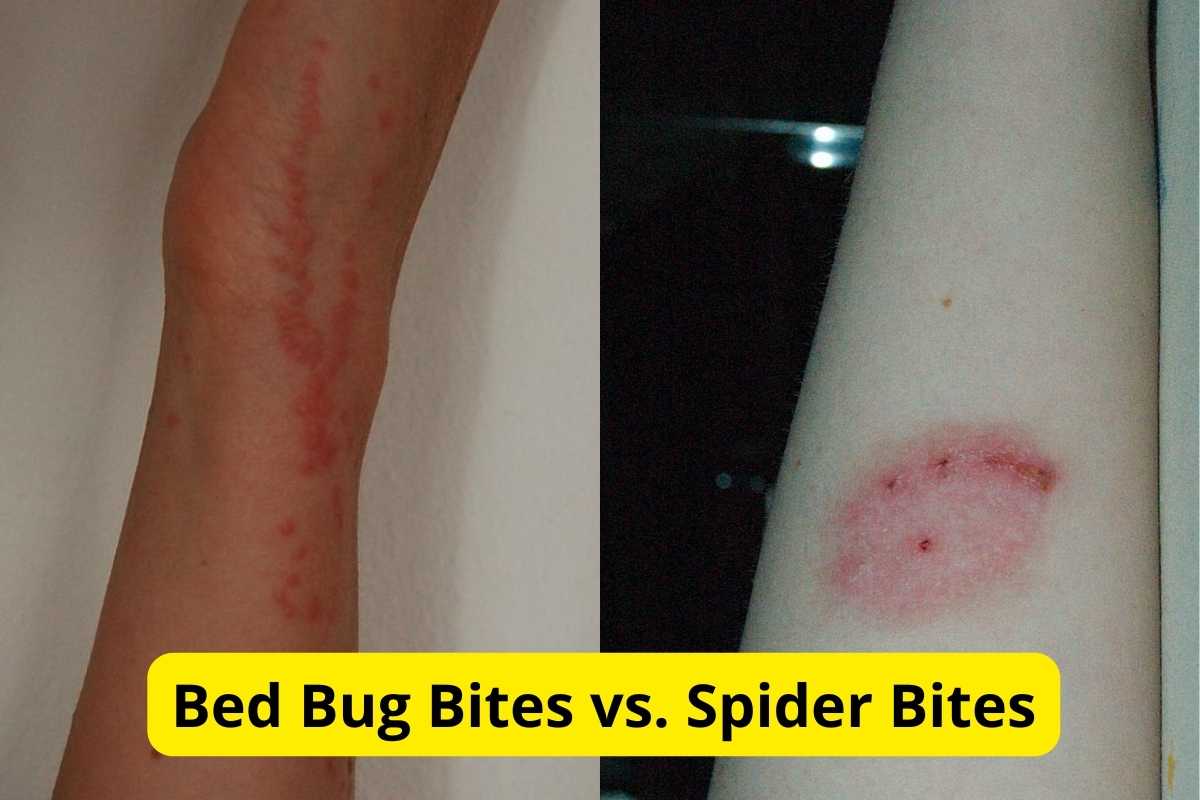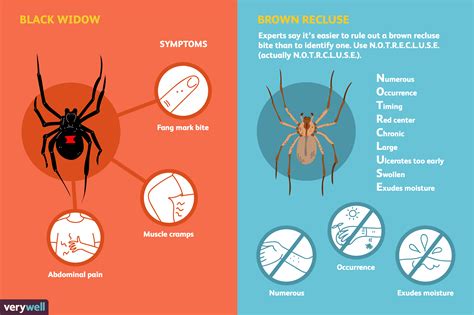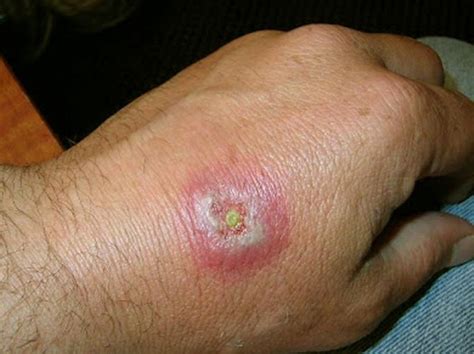Bed Spider Bites Symptoms

When it comes to bed bugs and their potential bites, it's important to be aware of the symptoms they can cause. While bed bugs are not known to transmit diseases, their bites can lead to various discomforts and skin reactions. In this blog post, we will delve into the symptoms of bed spider bites, helping you identify and address any potential issues promptly.
Understanding Bed Spider Bites

Bed spiders, often referred to as bed bugs, are small, wingless insects that feed on the blood of humans and animals. They are notorious for infesting homes, hotels, and other places where people sleep. While they do not fly or jump, bed bugs are excellent hitchhikers, easily traveling on clothing, luggage, or furniture. Once they find a suitable host, they can quickly establish a thriving population.
Bed spiders are primarily active at night, which is when they feed on their hosts. They are attracted to the carbon dioxide we exhale and the warmth of our bodies. While feeding, they inject a small amount of saliva into the skin, which can lead to an allergic reaction and the development of symptoms.
Symptoms of Bed Spider Bites

The symptoms of bed spider bites can vary from person to person, and some individuals may not experience any symptoms at all. However, common symptoms include:
- Itching: One of the most common and immediate reactions to bed spider bites is intense itching. The bite sites may become extremely itchy, leading to scratching and potential skin irritation.
- Redness and Swelling: Bites often appear as small, red, raised bumps on the skin. The affected areas may become swollen and inflamed, especially if multiple bites are present.
- Rash: A rash or cluster of small, red spots may develop around the bite sites. This rash can be itchy and uncomfortable.
- Blisters: In some cases, fluid-filled blisters may form around the bite marks. These blisters can burst and crust over, leaving behind scabs.
- Dark Spots: Bed spider bites can leave behind dark spots or marks on the skin, which may take several days or weeks to fade.
- Allergic Reactions: Some individuals may experience more severe allergic reactions to bed spider bites. Symptoms can include hives, difficulty breathing, and anaphylaxis in rare cases. If you suspect an allergic reaction, seek medical attention immediately.
It's important to note that bed spider bites are not always easily noticeable, especially if you have multiple bites or if the bites are located in areas that are difficult to see, such as the back or legs. Additionally, the symptoms may not appear immediately after being bitten, as it can take a few hours or even days for the reaction to become apparent.
Identifying Bed Spider Bites

To identify bed spider bites, consider the following factors:
- Pattern of Bites: Bed spiders tend to feed in a pattern, often in a line or cluster. Look for a group of bites in a relatively small area.
- Time of Day: Bed spiders are nocturnal feeders, so bites are more likely to occur during the night or early morning.
- Location: Bites are commonly found on exposed areas of the body, such as the arms, legs, neck, and face. However, they can also occur on covered areas if the bed bugs have access to those areas.
- Visual Inspection: If you suspect a bed bug infestation, carefully inspect your mattress, bedding, and furniture for signs of bed bugs, such as tiny black spots (fecal matter) or shed skins.
Treating Bed Spider Bites

If you suspect you have been bitten by bed spiders, here are some steps you can take to alleviate the symptoms and promote healing:
- Clean the Affected Area: Gently wash the bite sites with mild soap and water to prevent infection.
- Apply Calamine Lotion or Antihistamine Cream: These products can help relieve itching and reduce inflammation.
- Use Cold Compresses: Applying cold packs to the affected areas can provide temporary relief from itching and swelling.
- Avoid Scratching: Scratching can lead to further skin irritation and potential infection. Keep your nails short and clean, and consider wearing gloves at night if necessary.
- Take Oral Antihistamines: Over-the-counter antihistamine medications can help reduce itching and allergic reactions.
- Seek Medical Attention: If you experience severe allergic reactions, persistent itching, or signs of infection, consult a healthcare professional for appropriate treatment.
Preventing Bed Spider Bites

Preventing bed spider bites is crucial to avoiding the discomfort and potential health issues associated with these pests. Here are some preventive measures you can take:
- Inspect and Clean: Regularly inspect your mattress, bedding, and furniture for signs of bed bugs. Vacuum and clean these areas thoroughly, paying close attention to seams, crevices, and any potential hiding spots.
- Use Protective Covers: Invest in bed bug-proof mattress and box spring encasements to prevent bed bugs from infesting your bedding.
- Launder Bedding: Wash your bedding regularly in hot water and dry it on high heat to kill any bed bugs or eggs.
- Avoid Infested Areas: Be cautious when staying in hotels or using second-hand furniture. Inspect these areas for signs of bed bugs before bringing them into your home.
- Seal Cracks and Crevices: Seal any cracks or crevices in walls, floors, and furniture to eliminate potential hiding places for bed bugs.
- Hire Professional Pest Control: If you suspect a severe infestation, consider hiring a professional pest control service to effectively eliminate bed bugs from your home.
Conclusion

Bed spider bites can cause a range of symptoms, from mild itching and redness to more severe allergic reactions. By understanding the symptoms and taking preventive measures, you can minimize the impact of bed bug infestations and protect yourself and your loved ones. Remember to inspect your surroundings regularly, maintain good hygiene practices, and seek professional help if needed. Stay vigilant, and you'll be better equipped to deal with these unwanted pests.
Can bed spider bites transmit diseases?

+
No, bed spider bites are not known to transmit diseases. However, they can cause allergic reactions and skin irritations.
How long do bed spider bite symptoms last?

+
The duration of symptoms can vary. Itching and redness may last for a few days, while dark spots or marks can take several weeks to fade.
Are bed spider bites contagious?

+
No, bed spider bites are not contagious. They are the result of bed bugs feeding on your blood.
Can I treat bed spider bites at home?

+
Mild symptoms can often be managed at home with over-the-counter treatments. However, severe allergic reactions or persistent symptoms may require medical attention.
How can I prevent bed spider bites in the future?

+
Preventive measures include regular inspections, proper hygiene practices, using protective covers, and seeking professional pest control if needed.



